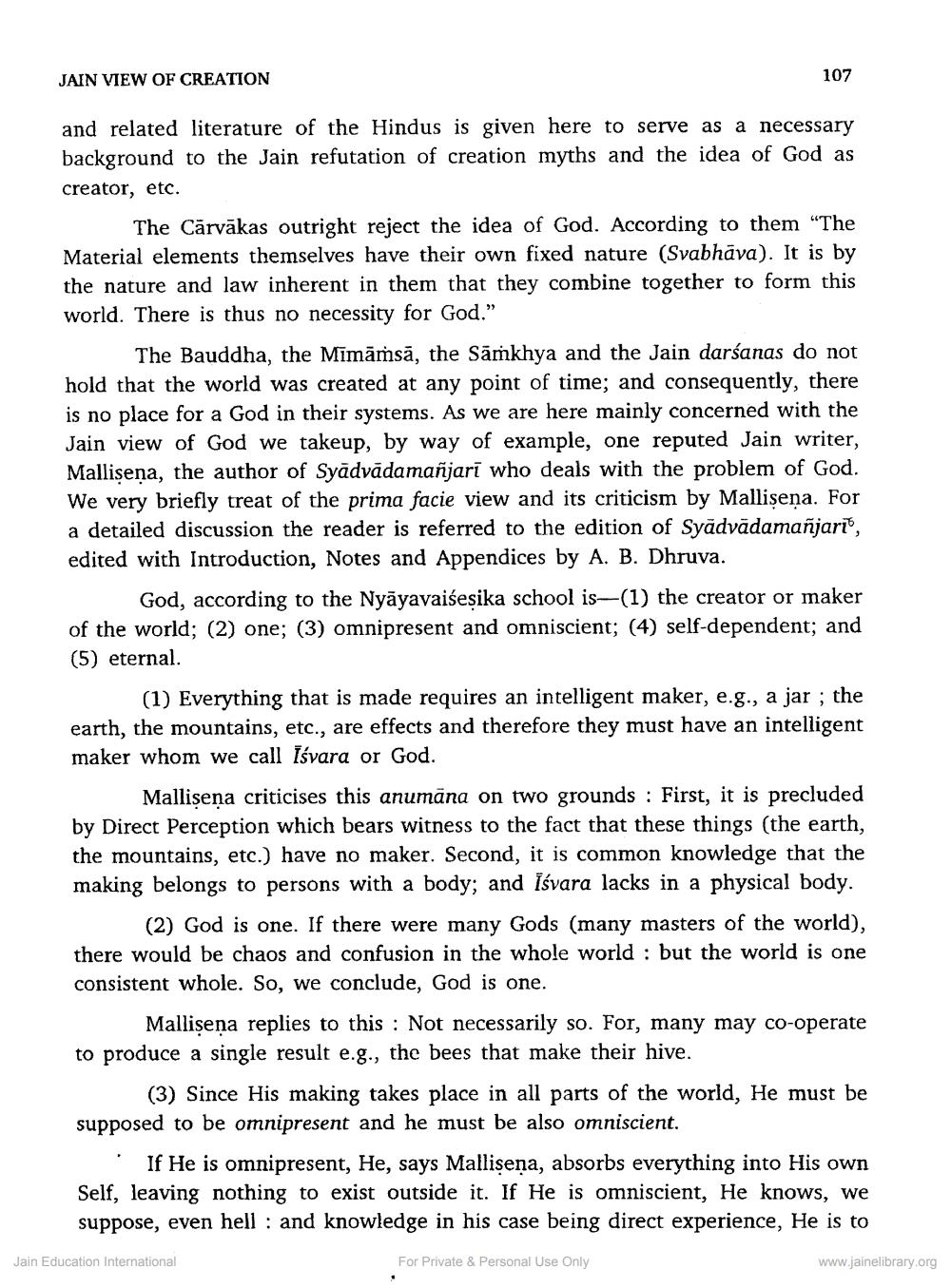________________ JAIN VIEW OF CREATION 107 and related literature of the Hindus is given here to serve as a necessary background to the Jain refutation of creation myths and the idea of God as creator, etc. The Carvakas outright reject the idea of God. According to them "The Material elements themselves have their own fixed nature (Svabhava). It is by the nature and law inherent in them that they combine together to form this world. There is thus no necessity for God." The Bauddha, the Mimamsa, the Samkhya and the Jain darsanas do not hold that the world was created at any point of time, and consequently, there is no place for a God in their systems. As we are here mainly concerned with the Jain view of God we takeup, by way of example, one reputed Jain writer, Mallisena, the author of Syadvadamanjari who deals with the problem of God. We very briefly treat of the prima facie view and its criticism by Mallisena. For a detailed discussion the reader is referred to the edition of Syadvadamanjarit, edited with Introduction, Notes and Appendices by A. B. Dhruva. God, according to the Nyayavaisesika school is (1) the creator or maker of the world; (2) one; (3) omnipresent and omniscient; (4) self-dependent; and (5) eternal. (1) Everything that is made requires an intelligent maker, e.g., a jar ; the earth, the mountains, etc., are effects and therefore they must have an intelligent maker whom we call Isvara or God. Mallisena criticises this anumana on two grounds : First, it is precluded by Direct Perception which bears witness to the fact that these things (the earth, the mountains, etc.) have no maker. Second, it is common knowledge that the making belongs to persons with a body; and isvara lacks in a physical body. (2) God is one. If there were many Gods (many masters of the world), there would be chaos and confusion in the whole world : but the world is one consistent whole. So, we conclude, God is one. Mallisena replies to this : Not necessarily so. For, many may co-operate to produce a single result e.g., the bees that make their hive. (3) Since His making takes place in all parts of the world, He must be supposed to be omnipresent and he must be also omniscient. If He is omnipresent, He, says Mallisena, absorbs everything into His own Self, leaving nothing to exist outside it. If He is omniscient, He knows, we suppose, even hell : and knowledge in his case being direct experience, He is to Jain Education International For Private & Personal Use Only www.jainelibrary.org




